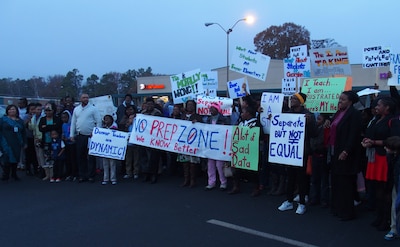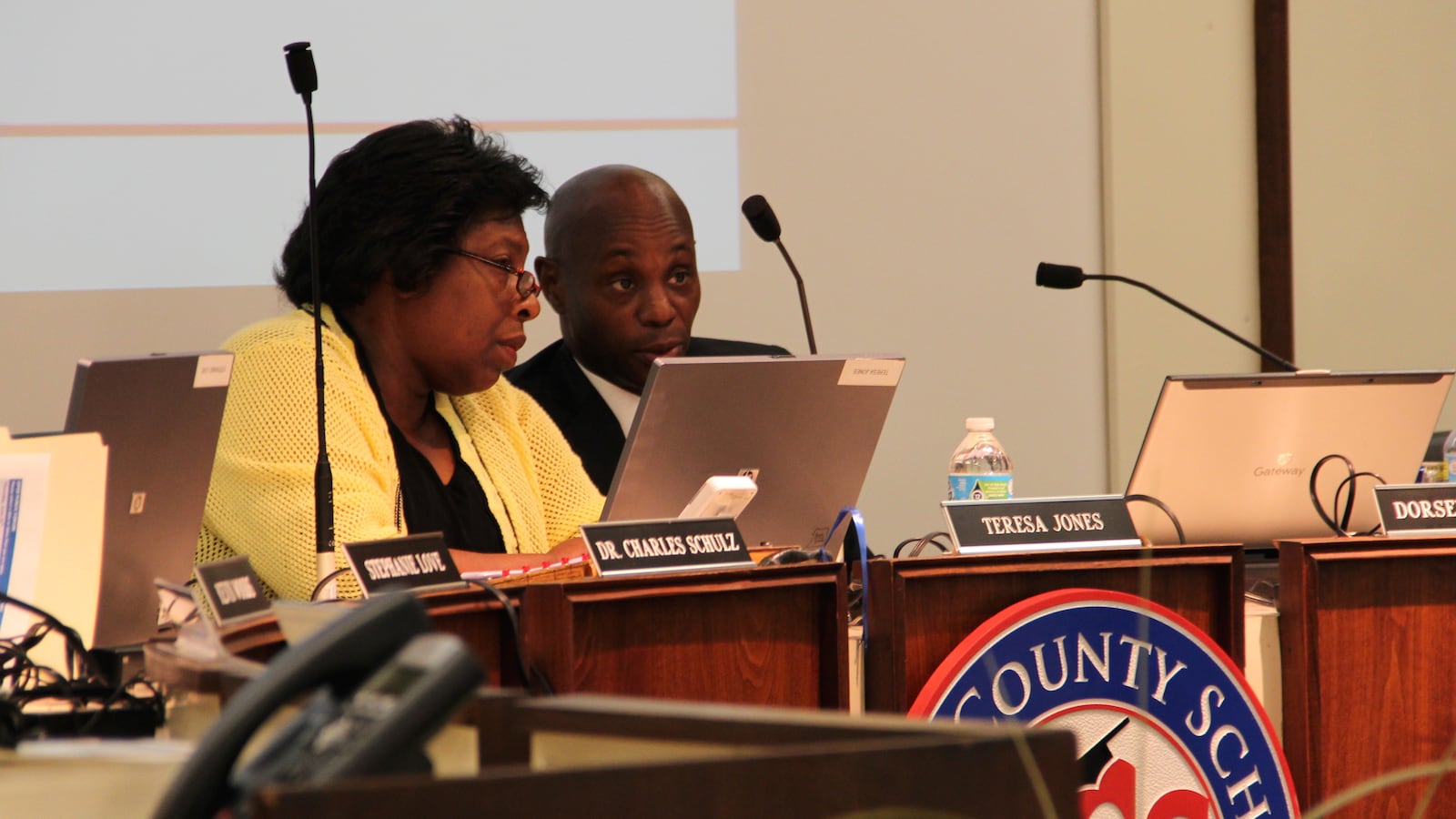Shelby County School leaders will launch a tour of its worst-performing schools this week to talk with faculty, parents and community members about what it means to be designated a state priority school.
Schools that fall academically in the state’s 5 percent of lowest-performing schools are eligible for intervention by the state’s Achievement School District, which by law can wrest a school from local district control and assign it to a charter operator in an effort to turn it around. Once removed from local district control, a school’s staff, curriculum and culture often are altered in the drive to boost test scores. Sometimes, even the school name is changed.
It’s the first year that Shelby County Schools has worked aggressively to have more control over discussion about the circumstances that can lead to state intervention, and what state intervention involves.
In the last few years, district staff members were available to field questions at faculty and town hall meetings led by the ASD at schools selected for state intervention. Those meetings, in which parents and teachers were concurrently told of their school’s academic status and introduced to charter operators, often became contentious, including shouting matches and walkouts by teachers and students.
“The community told us they didn’t hear from anybody on our end,” Superintendent Dorsey Hopson told the school board on Tuesday evening. “There’s a feeling that somehow this board has abandoned these schools. We want them to know we’re still here, we’re still supporting you, but the reality is the board doesn’t control this process.”
Eleven Memphis schools are eligible for state intervention. The district-led community meetings will begin at 6:30 p.m. and will be held:
- Wednesday, Aug. 19 – Hawkins Mill Elementary School
- Thursday, Aug. 20 – Caldwell Guthrie Elementary School
- Monday, Aug. 24 – Sheffield Elementary School
- Wednesday, Aug. 26 – Raleigh Egypt Middle School
- Monday, Aug. 31 – Kirby Middle School
Shelby County administrators plan to explain the implications of being on the state’s priority school list, including eligibility for state intervention and charter school conversion, as well as that process. They will detail options for parents, including staying put or transferring their child to a neighboring school. The principals will talk about their own efforts to boost scores.
Hopson said he’s been reluctant in the past to be part of the dialogue because he didn’t want community members to think that he or his administration were complicit in the state’s action.
“There’s a lot going on in the Memphis education landscape and I think SCS needs to be engaged in every step of the way,” Hopson said. “But we know constituents think that us not being engaged is effectively turning our back on schools and neighborhoods. That’s not true. We owe it to families to give accurate information. We’re participating and therefore we’re supporting.”
Board members said it’s important that administrators be available to combat misinformation.

“I’m really appreciative that we’re being more involved this year because it hasn’t happened in the past,” said Stephanie Love. “There should be someone from the SCS side with hands and feet on the ground.”
The ASD, in an effort to improve the community engagement and school matching process, unveiled an a revised strategy in July that will be implemented in the coming weeks and months. Charter operators must apply to the ASD to be matched with a priority school. The ASD will host a series of meetings with community stakeholders. Parents will be asked to be on neighborhood advisory councils that will vote on their school’s future.
Shelby County Schools began its own school turnaround initiative known as the Innovation Zone in 2012 in an effort to boost scores. iZone schools are given special flexibilities and receive extra state money for intensive interventions. Hopson said the district recently received a grant that will allow it to expand the iZone to three more schools next school year.
ASD leaders have said they will not intervene in priority schools in the iZone to give the local district latitude for improvement.
Hopson said the growing iZone gives parents another option besides ASD-authorized schools and also allows the local district to retain students.


